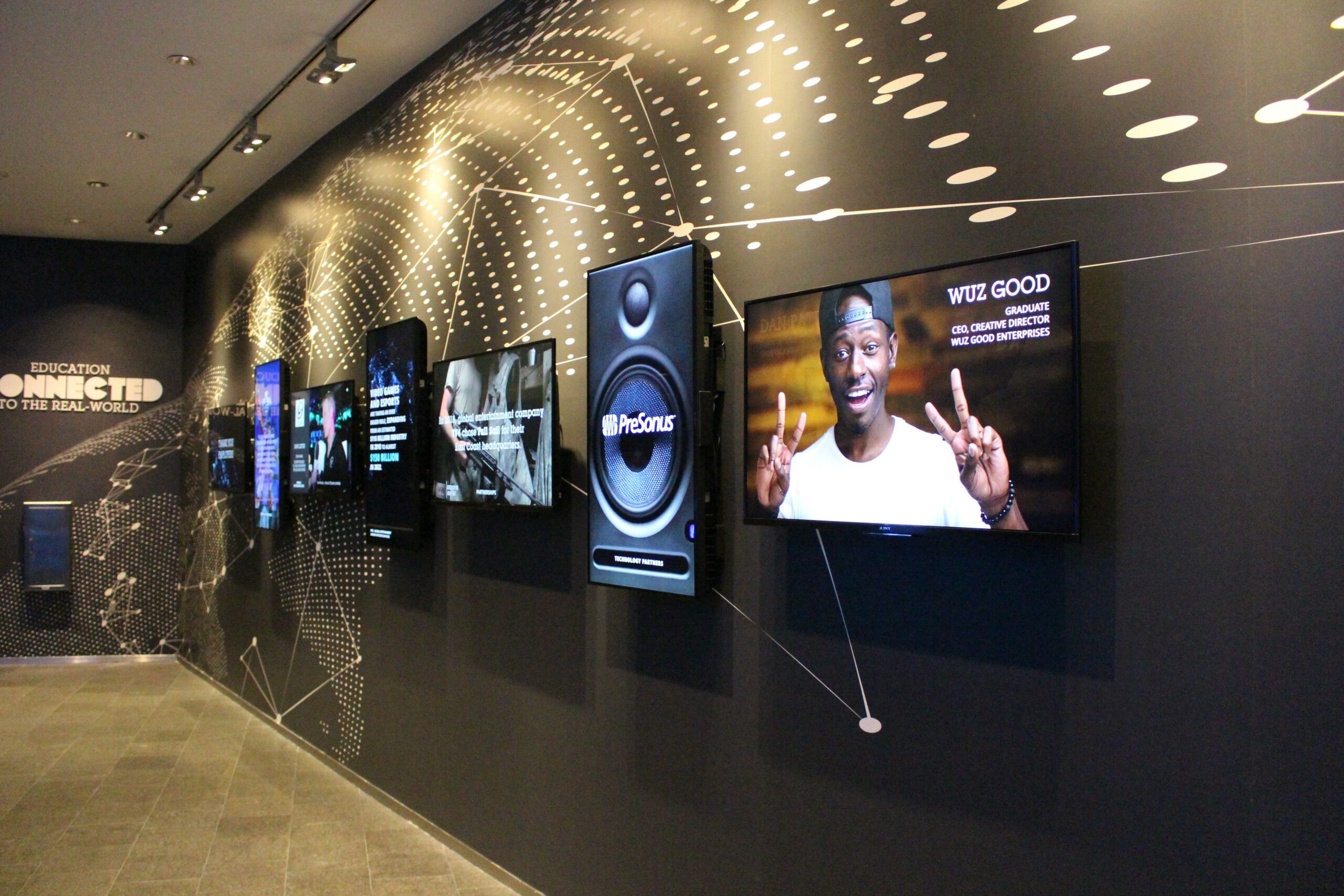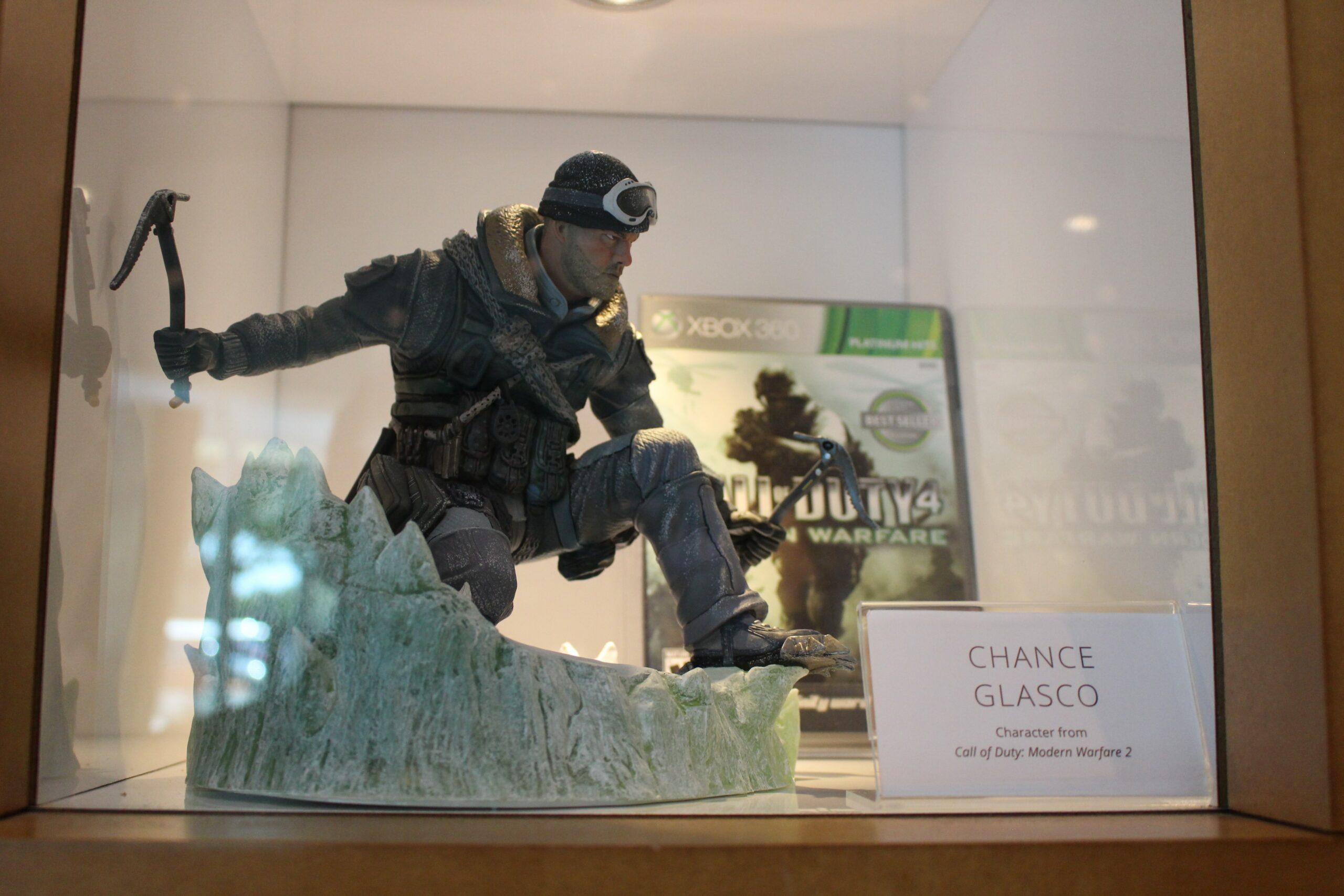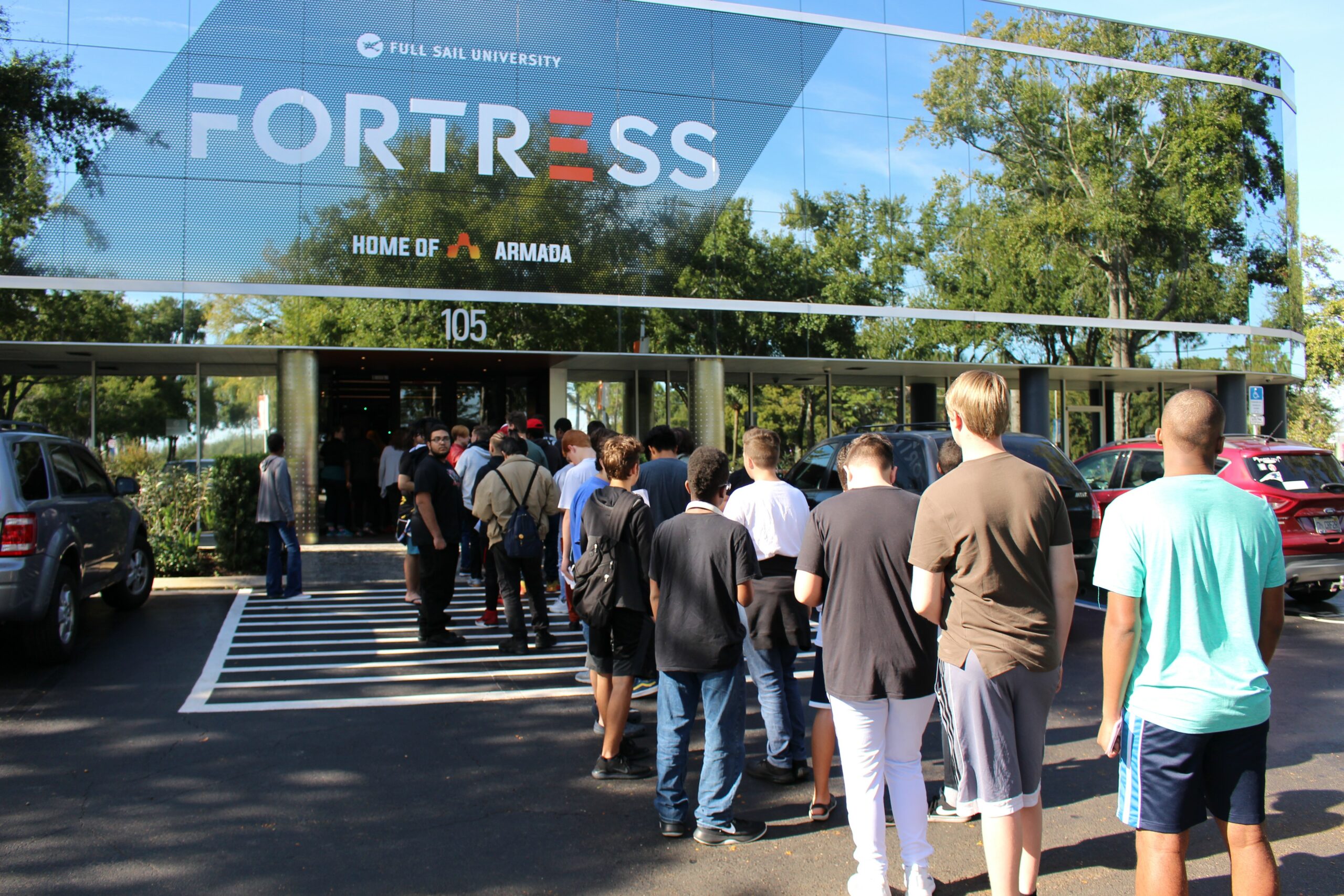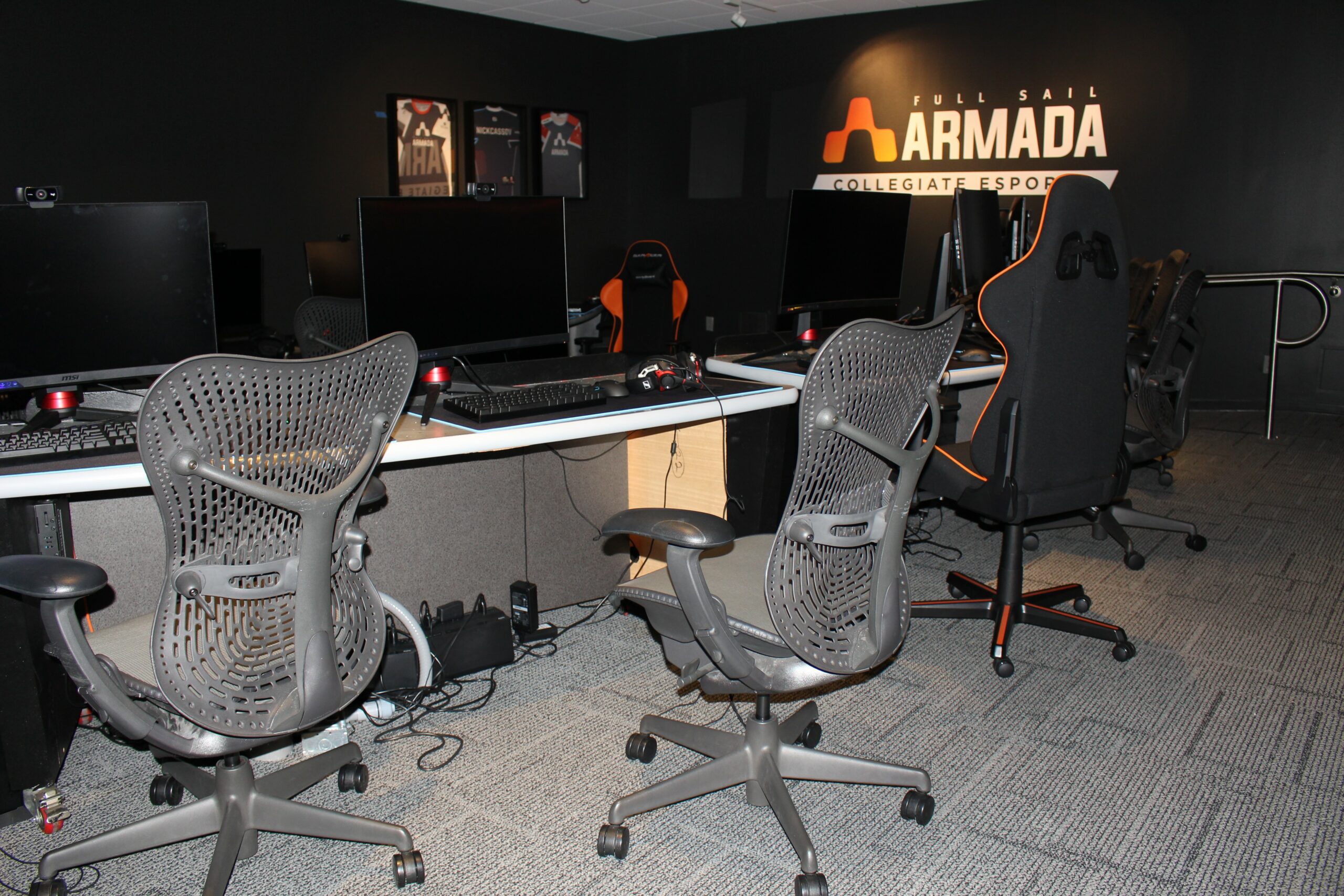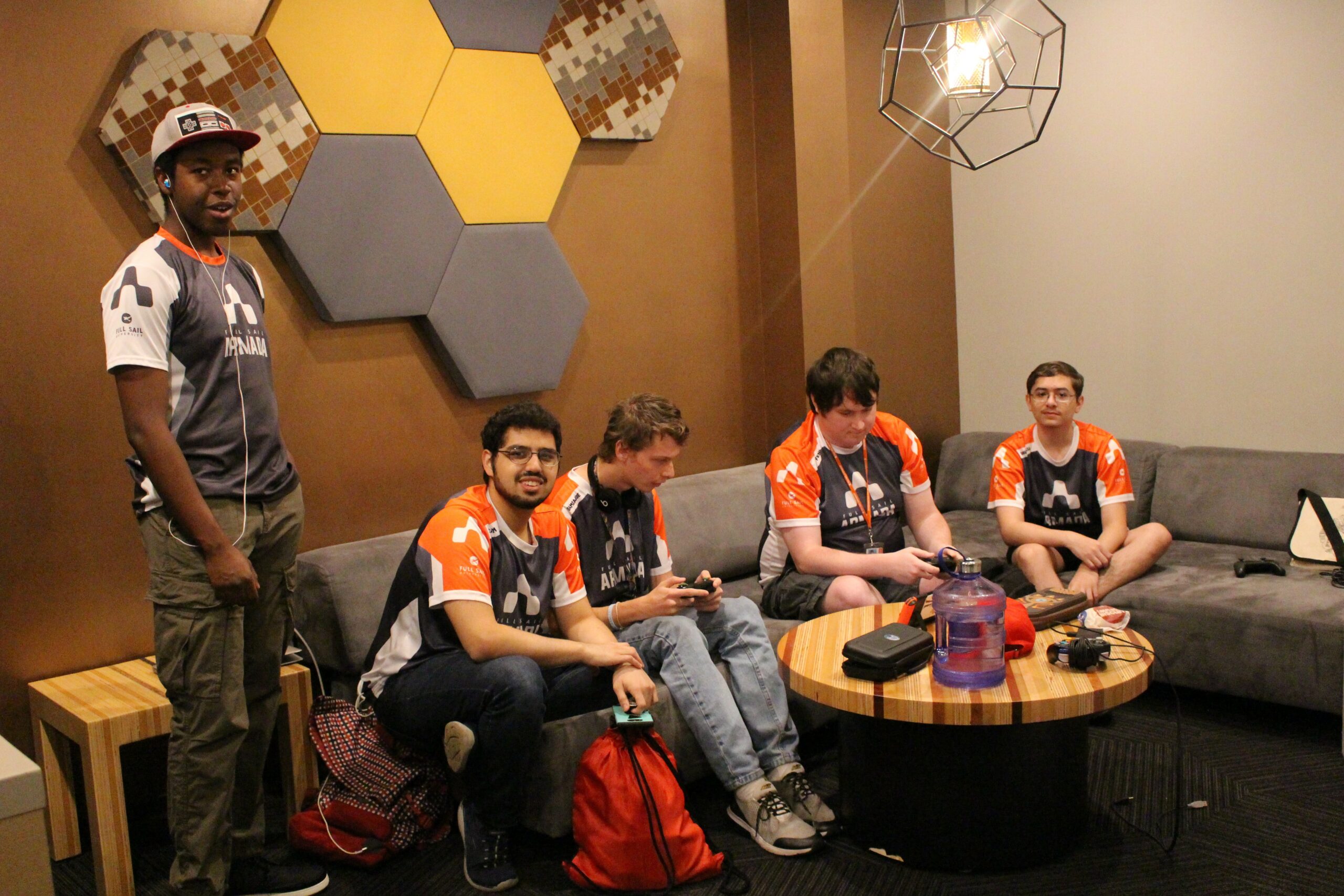The greatest place on earth for esports? Someday, like its signature theme park, it might be Orlando, Florida.
The City Beautiful still has a ways to go before catching up with Seattle, Los Angeles and Irvine, but it is rising quickly, thanks to its commitment to innovation and technology and the growth of its many universities.
In June of 2019, the website WalletHub did a comparison of the top 100 U.S. cities for gamers based on “key indicators of gamer-friendliness.”
Sitting at No. 4 was Orlando. It ranked No. 2 for Gaming Environment (trailing only Atlanta) and ranked No. 5 for Gamer & Developer Opportunities.
As educators look for examples of schools reaching students through competitive video gaming and new technology, they would be wise to look at what’s happening in Central Florida, which has become one of the best training grounds for them to get into esports.
Orlando in many ways has been transforming its static theme-park image to one as a tech leader. Companies such as EA Tiburon and other startups have helped to bring recognition to the area. But a primary force behind the lofty WalletHub ranking has been the strides its universities have made over the past decade.
In the next parts of our series on Florida schools making a difference through esports, we look at three Orlando schools providing a real future and career path for their students.
One of them is Full Sail University, a for-profit school in the suburb of Winter Park, which has received high praise for its Game Design program, named one of the best in the U.S. by The Princeton Review and for The Fortress, which is the largest on-campus esports arena in the country.
What makes Full Sail unique is that its programs are tailored toward “real-world experience.” There’s a lot of that happening on its sprawling campus in work-focused courses in Art & Design, Film & Television and Music & Recording.
And especially from its popular Games program.
In it, Full Sail offers both campus and online bachelor’s degree courses, where students can develop fundamentals in a variety of realms: interactive graphics, production, programming and even simulation and visualization through virtual reality, modeling and artificial intelligence. Full Sail also offers masters’ degrees in Mobile Gaming and Game Design. Its facilities and the technology housed within them are jaw-dropping … including a state-of-the-art, $3 million VR/AR lab.
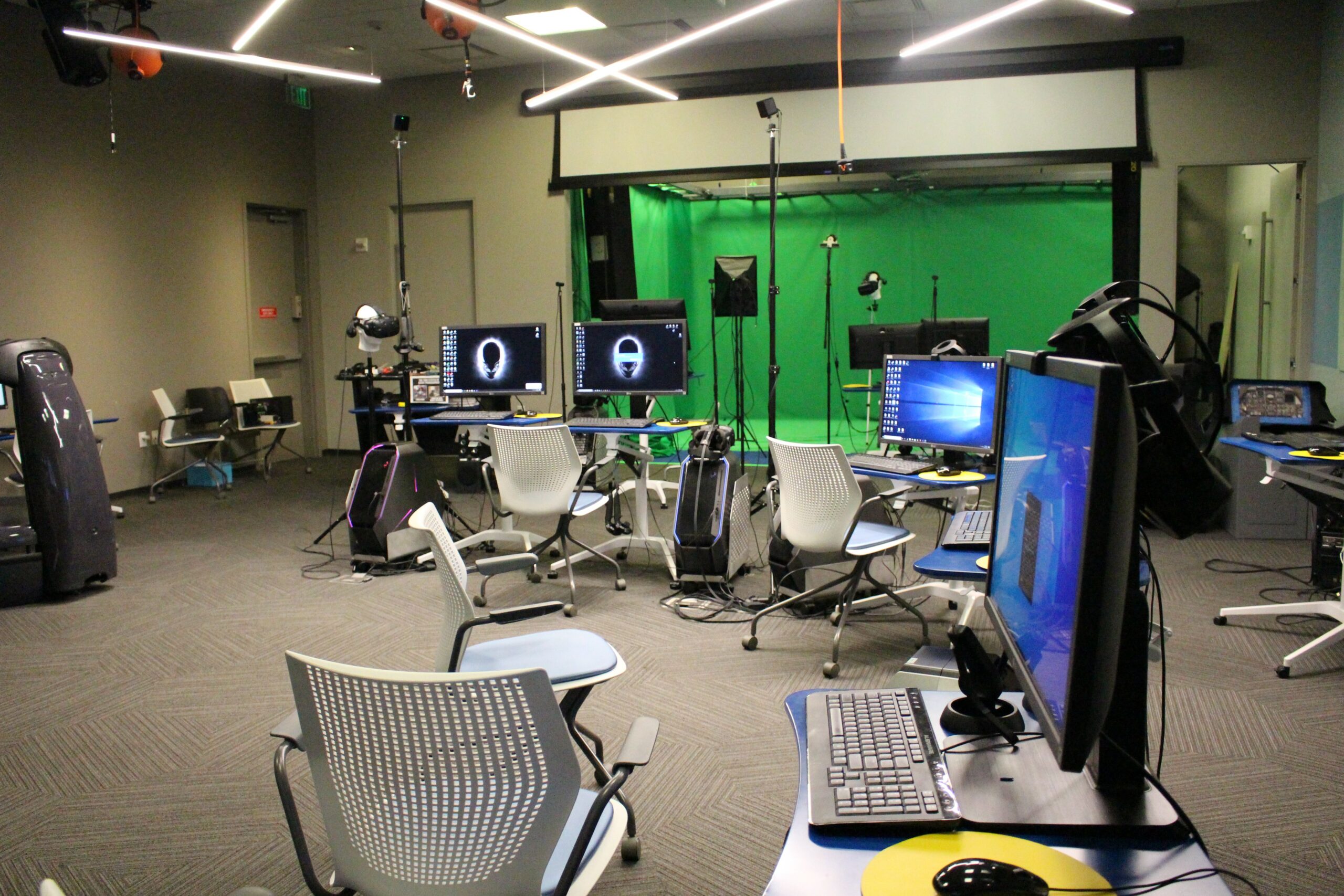 Full Sail’s undergrads learn from standouts in and around esports and gaming, faculty members who have serious expertise in all areas of production and development.
Full Sail’s undergrads learn from standouts in and around esports and gaming, faculty members who have serious expertise in all areas of production and development.
“We require our instructors to have a minimum of four years of industry experience, which is powerful,” says Joel Pickering, Community Outreach Manager at Full Sail. “You’ve got people who have spent their whole career in film or TV, and now they’re coming back because they want to pass this knowledge on. I think that is a huge selling point because you’re actually learning from people that have been out there and have done it.”
One Central Florida native who stayed in the area – after spending a little time on the road as a guitarist and musician – is Bennett Newsome, Full Sail’s Esports Strategist who has been at the university for nearly 13 years. A popular voice in esports circles, Newsome is a Twitch partner/streamer who works closely with Full Sail’s solid varsity-level team on campus called Armada. We sat down with him to learn more about his career path in gaming, Full Sail’s plans for the future and a look at where esports is headed.
What is your current role at Full Sail? How has your position evolved?
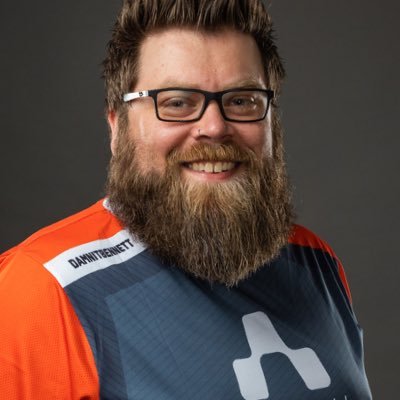 During my time at the university I’ve been entrusted with various roles, from admissions to student support and kind of everything in between. Before Full Sail, I played music for 20 years, with the majority of that time spent on the road touring. My music brought me here, but eventually, I was ready to transition to explore other interests. I’ve always had a passion for gaming, and have been an avid player and fan since childhood. Eventually, by pursuing gaming/streaming I became partnered on Twitch. The combination of the things – passionate about gaming, streaming, doing the broadcasting, and Full Sail – all aligned. Now, in my current role as Full Sail’s Esports Strategist, I’m able to lend my expertise to the team as we continue to build and grow our esports efforts.
During my time at the university I’ve been entrusted with various roles, from admissions to student support and kind of everything in between. Before Full Sail, I played music for 20 years, with the majority of that time spent on the road touring. My music brought me here, but eventually, I was ready to transition to explore other interests. I’ve always had a passion for gaming, and have been an avid player and fan since childhood. Eventually, by pursuing gaming/streaming I became partnered on Twitch. The combination of the things – passionate about gaming, streaming, doing the broadcasting, and Full Sail – all aligned. Now, in my current role as Full Sail’s Esports Strategist, I’m able to lend my expertise to the team as we continue to build and grow our esports efforts.
The job specifically the esports world is a sea of opportunity, right? Whether it be for learning, career opportunities, community growth etc. You want to make sure that the course you plot now will lead you in the desired direction of your goal. Part of my job is navigating those waters, making sure that we’re staying true to the goals that we have. One of our main goals is to be the hub for esports, not only in Central Florida, but in Florida and the East Coast. I think we’ve been doing a good job with that so far, and I’m excited to see our esports efforts continue to flourish in 2020 and beyond.
Why is Full Sail such a good place for students who are interested in gaming and esports?
Full Sail has been teaching in the areas of show production and game design for over 20 years. This isn’t anything new to us. Now, people are competing at video games, both online and in front of large arena-filled audiences. It’s no longer this thing that you don’t really tell anybody that you do. It’s pop culture. Our student population is already passionate about gaming and our team, Armada, is a point of pride for our community to rally behind. Even throughout our other degree programs – even in music production or recording arts, which is our flagship program and what started it all here – even those students are passionate about gaming.
I think that we have this built-in kind of community that has already said, this is our world. Every program that we offer here, in some way, shape or form has a connection to esports. We don’t actually recruit for our esports team. That’s how we scout our teams. We’re in a lucky position because of that. There are a lot of schools that are starting game design programs, specifically because they want to help recruit those types of students for their teams.
Where do most of Full Sail’s students come from?
We are proud to serve students from 50 states and 56 countries. We have a good home base of students [in Florida] that found Full Sail from going to high school here or from visiting us during a campus tour. Most students that come here are looking for degrees, whether that’s in entertainment, technology, sportscasting, business, film or audio, production, graphics.
What has the building of The Fortress done for your program and for Full Sail University?
First and foremost, The Fortress is a classroom, and that is the coolest part about it. Students that are in different degree programs get to go in there and work on their projects or these events. Things that are happening today [at a recent High School Invitational], there are students involved in that production. So, it is a really exciting space just in that scope. Obviously, it’s had an opportunity to bring a lot of things to the campus. We did the NBA2K League’s “The Ticket” event. We kicked off this year’s Red Bull Conquest in there with three different tournaments. There’s been a ton of Armada events, which are the things we put on for our team. We’ll do collegiate invitationals; we did one for Call of Duty, where we were invited UCF and a couple other schools to come. We had a great time doing that. The Fortress is a great space not only for our players but for the community as a whole. What it’s done is given us an opportunity to show this is something that we’re serious about, that this is real.
You mentioned that students do production, work the lighting and do casting in the arena. How much is faculty a part of that?
There’s always professional staff and faculty involved, but part of the goal for us, is we want our students to graduate with credits and experience. There’s nothing more powerful than walking into an interview and handing them a resume that has your experience of you actually doing the job. For example, in another on campus venue, Full Sail Live, we host weekly live productions of WWE’s NXT, which airs on the USA network. Since 2012, Full Sail and WWE have had an educational partnership where our students serve in shadowing and production roles alongside WWE’s industry professionals. And it’s incredible to have that relationship with them. We have students that work every single one of those events. There’s nothing better than getting that experience, walking across that stage at graduation, knowing that you have WWE on your resume. Within The Fortress, students are getting to serve in production roles behind the scenes at the esports events we hold. Both at the professional and collegiate levels. I think that it provides a powerful opportunity for our current students and future students that are looking to really getting hands-on experience. It’s also exciting when we can welcome our grads, who are currently working in the esports industry professionally, back home to campus to The Fortress.
In addition to The Fortress, you have a practice space for players. How many workstations do you have in the room?
We have about 15 full top-of-the-line computers from MSI, one of our sponsors for the team. They are playing on the best the best gear you can get, which is awesome. We have about 82 student-athletes competing across nine different titles. Some of those, like League of Legends, they have a JV team and a varsity team.
The Fortress was built with existing space on campus. Other universities, even large ones, are struggling to find room on campuses? What kind of vision do you need to have to pull this off? Can any university do this?
Yes and no. For us, this makes perfect sense because of the degrees that we offer – the show production, the film, the live events again, classroom being the main focus of the space. I’ve had plenty of conversations with other schools asking, âHey, man, how did you guys even get them to say yes, and then have them invest $6 million to build this thing?’ We are very fortunate to have the leadership that can see 10 feet in front of them – this is next thing. Our leadership listens to our students, graduates and the industry. They’ve always believed in investing in facilities on our campus that provide our students with real world educational opportunities to prepare for their future careers. The Fortress is no exception. Â When we talk to other schools, we try to understand what makes sense for them and what their goals are. I’ve seen some of these other spaces. They’re incredible. Obviously, The Fortress is my favorite, but it is very specific to what we do. If another school went and built a Fortress, I’d hope that it would be in conjunction with the types of degrees they offer and have the same effect.
Hundreds showed up the High School Invitational you hosted. Why does embracing esports at the high school level matter for school districts and parents?
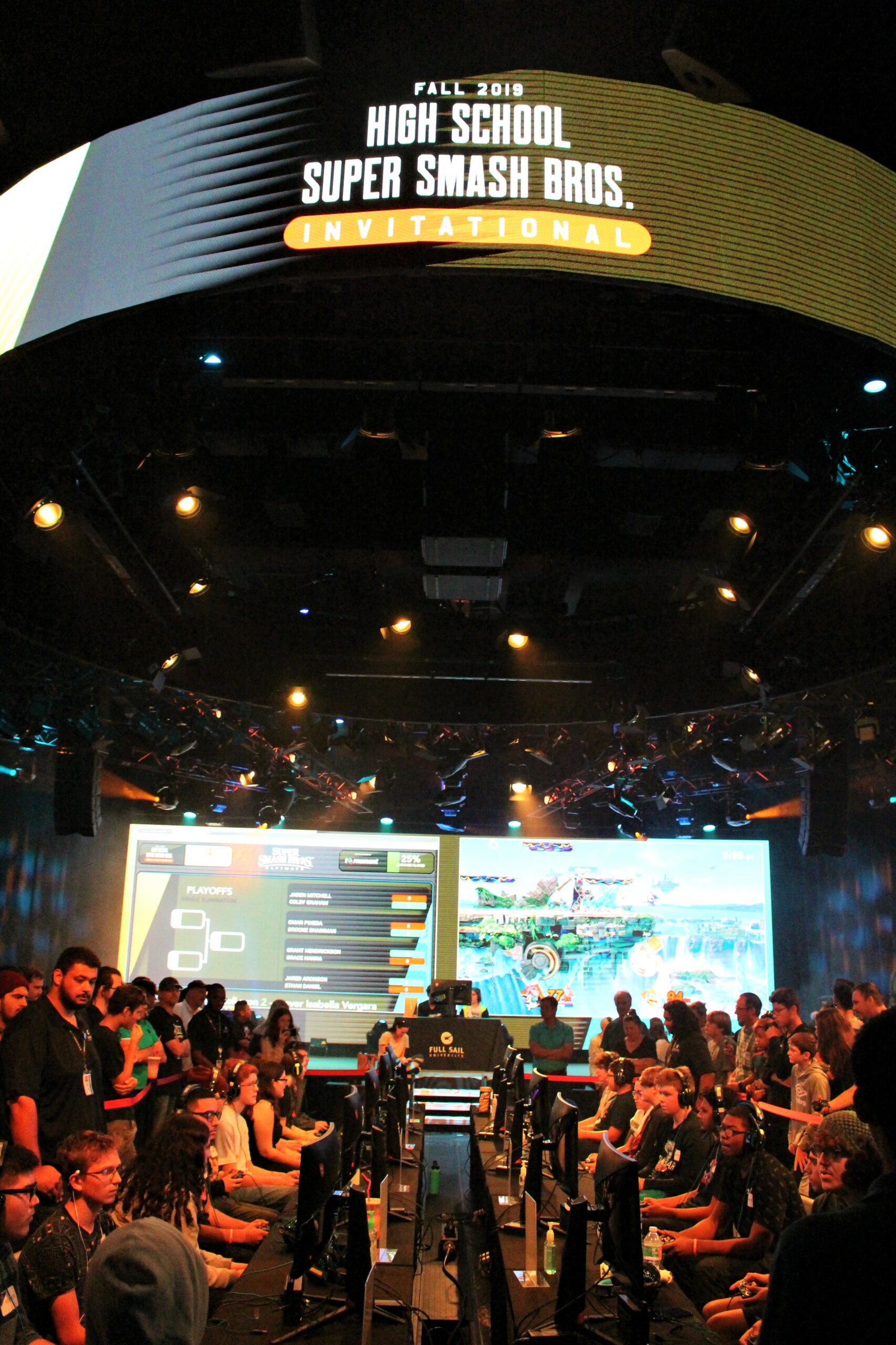 I think the true path [for a future in esports] is the high school and middle school systems. Once they really adopt esports as a varsity sport or implement it into their system and get it solidified, that path to college for students is going to be incredible. I kind of always look at it like the social media boom. Ten years ago, if you told someone that you were their Social Media Manager, they would kind of laugh at you like, oh, get a real job. Now, you can’t have a company without that. You don’t exist. You can’t be successful because you need to have that presence. I kind of look at esports as the same kind of explosion, where this industry is just booming. All of these employers are saying, âoh, we need these people, we need those people.’
I think the true path [for a future in esports] is the high school and middle school systems. Once they really adopt esports as a varsity sport or implement it into their system and get it solidified, that path to college for students is going to be incredible. I kind of always look at it like the social media boom. Ten years ago, if you told someone that you were their Social Media Manager, they would kind of laugh at you like, oh, get a real job. Now, you can’t have a company without that. You don’t exist. You can’t be successful because you need to have that presence. I kind of look at esports as the same kind of explosion, where this industry is just booming. All of these employers are saying, âoh, we need these people, we need those people.’
This is just the beginning. Once there are great programs out there that are helping pave the way for high school esports, it’s really going to make sense to everybody, just as it would be if you were a football player, and you got a football scholarship.
What advice would you give high schools who are thinking about implementing esports?
I think the best advice is to take it slow and really do things at your own pace. If you’ve already decided to jump in headfirst, that’s great, but make sure to do the research. We encourage anyone with an interest to check it out and get involved [in esports] whether that be for the fun of playing games or being a part of a team/community. But I think there are still some skeptics. You want to make sure that you can do this to the best of your abilities. You want to make sure you can get the administrations support, so they can say, this is providing a great opportunity for students, as well as for their future. There are a lot of studies that show that having students be involved keeps them out of trouble. Playing video games isn’t a scary thing anymore. It’s really a huge positive. There are so many skills that students end up learning playing video games that might not make sense at first. But when you actually watch them do it – the communication, the participation, the working with teammates everything they can gain in traditional sports – they’re doing this on a team sport in the esports and gaming worlds. It really can help students find that kind of safe space.
What is the future of esports?
If you look at how it has evolved overseas, you have the basketball players wanting to hang out with the video game players. They’re on an equal plane almost. You’re starting to already see it here with Fortnite. They opened the floodgate of opportunity, where you see this professional athlete that plays football, but now they’re also streaming and playing Fortnite with Ninja. It’s like, where is the separation? I think this is a pivotal moment. I have NHL players that are friends of mine that I play games with on Twitch. It’s crazy. I’m a huge hockey fan and I’m playing video games with them. Twitch has had a huge hand in shaping esports and the kind of acceptability and growth over the last 10 years.
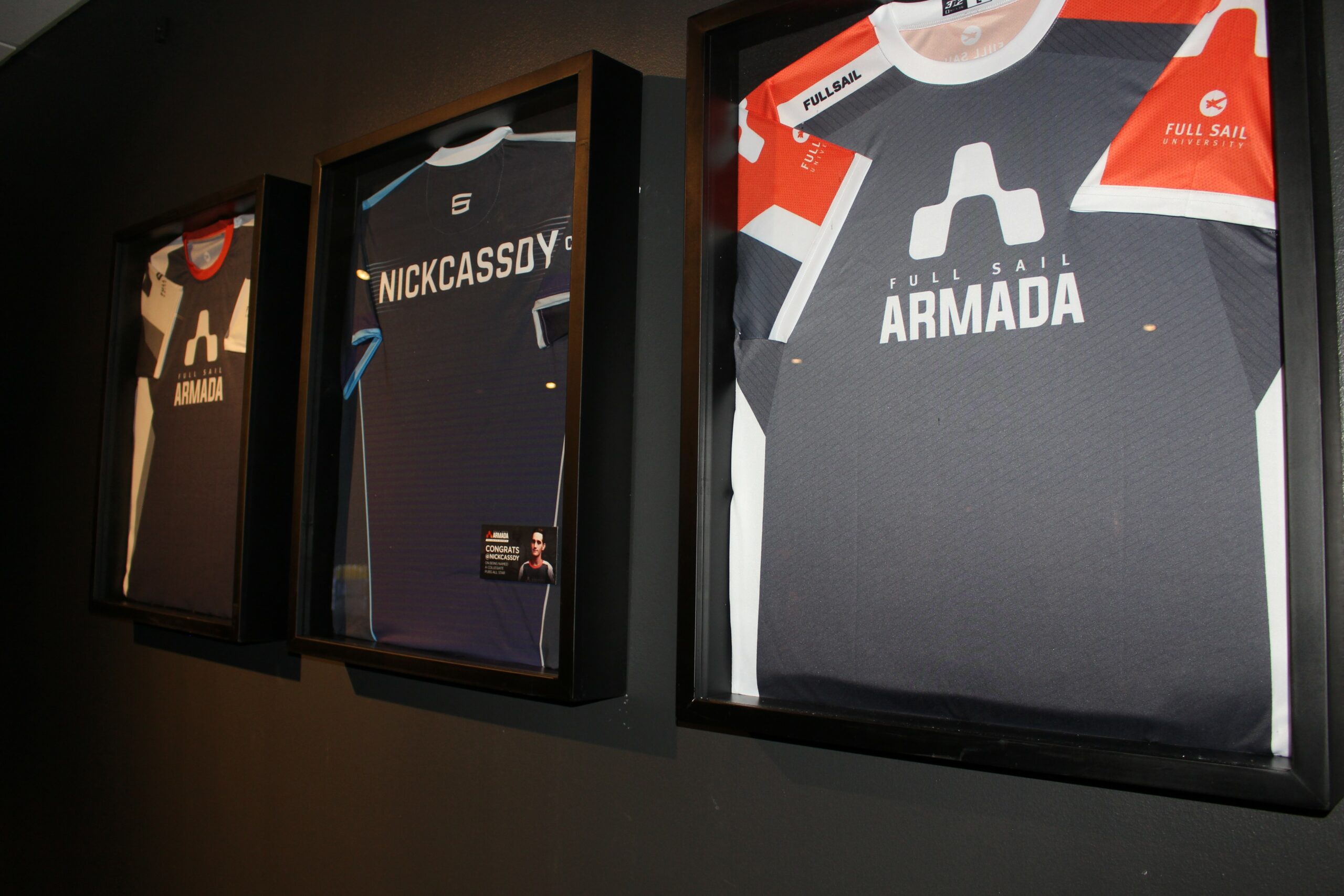 We’ve also seen some huge announcements, Ninja leaving Twitch and going to Mixer. These are big deals. If you think about platform exclusivity aside, these are some major esports contracts that they are signing. They’re being drafted to a team – Team Mixer, Team Twitch, Facebook, YouTube, whatever it is. They are setting a precedent for this type of thing to exist in the gaming space, which didn’t before. To think about being able to sign huge contracts as a broadcaster, as an entertainer, as an esports player, it’s wild. I think you’re going to see this industry grow, but I think you still have to be cautious.
We’ve also seen some huge announcements, Ninja leaving Twitch and going to Mixer. These are big deals. If you think about platform exclusivity aside, these are some major esports contracts that they are signing. They’re being drafted to a team – Team Mixer, Team Twitch, Facebook, YouTube, whatever it is. They are setting a precedent for this type of thing to exist in the gaming space, which didn’t before. To think about being able to sign huge contracts as a broadcaster, as an entertainer, as an esports player, it’s wild. I think you’re going to see this industry grow, but I think you still have to be cautious.
I get asked about the bubble all the time. My opinion on that is that if you are investing in the right infrastructure, and you’re doing things in the right way, I think you’re going to have a better opportunity to be successful because you’re building it for the right reasons. I think that part of our thing here is that community focus. If you’re not authentic and haven’t done your research, it’s probably not gonna end well.
Chris Burt is the Program Chair for the newly launched Academic Esports Conference & Expo October 19-21 at the Hilton Chicago and the Esports Editor for LRP Media Group. For more information on the event, contact him at [email protected]

